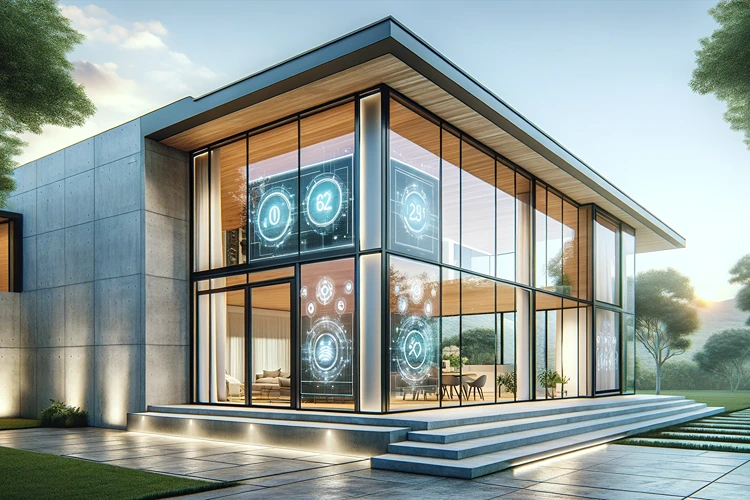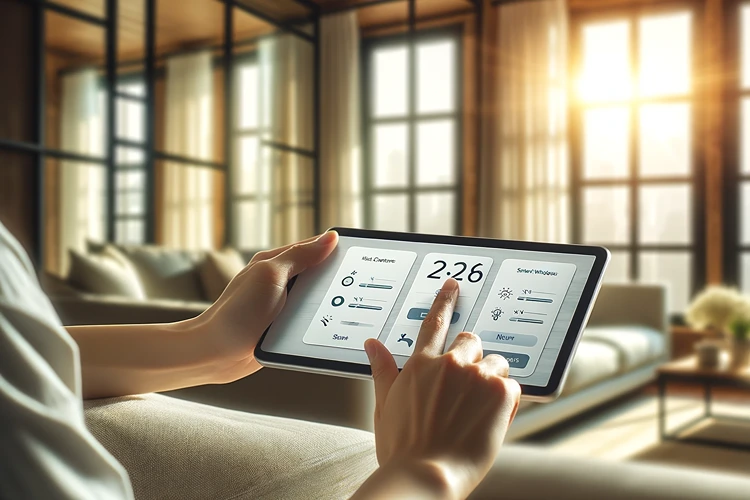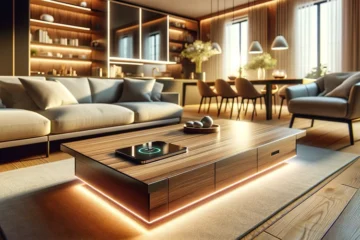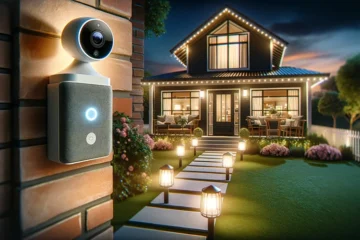The Benefits of Smart Windows in New Home Construction

Imagine living in a home that not only looks after your comfort and security but also manages energy efficiency with cutting-edge technology. Smart windows in new home construction are turning this vision into reality. These innovative windows offer more than just views and natural light; they adapt to environmental conditions to optimize your living space. But what exactly makes them a game-changer in modern homes?
What Are Smart Windows?
At their core, smart windows represent a leap in window technology, incorporating features like automatic tinting, thermal regulation, and integrated IoT capabilities. This means they can change their properties based on the time of day, weather conditions, or even your personal preferences, all aimed at enhancing comfort and efficiency.
Energy Efficiency and Cost Savings
One of the standout benefits of smart windows is their ability to significantly reduce energy costs. By adjusting the tint or opacity to control the amount of heat and light entering a home, these windows can cut down on the need for air conditioning in the summer and heating in the winter.
Stats:
Studies show that smart windows can reduce energy usage by up to 20% in residential buildings, highlighting their role in promoting sustainability.
Enhanced Comfort and Convenience

Smart windows offer unparalleled comfort. Imagine waking up to gently filtered light, or never having to manually close blinds again. These windows adjust in real-time, ensuring your home is always at an optimal level of brightness and temperature without any effort on your part.
Improved Security and Privacy
With the ability to become opaque at the touch of a button, smart windows provide an instant privacy shield. This feature, combined with reinforced materials, also adds a layer of security, deterring potential intruders by obscuring their view into your home.
Helpful Hint:
For those concerned about privacy, consider windows that offer varying levels of opacity. This allows you to enjoy natural light while keeping your home shielded from prying eyes.
Seamless Integration with Smart Home Systems
Smart windows are a key component of the fully integrated smart home. They can communicate with other smart devices to create a cohesive, automated living environment. This includes adjusting the windows based on your smart thermostat settings or even opening them slightly when the indoor air quality sensor detects a need for fresh air.
UV Protection Without Sacrificing Light
These windows can filter out harmful UV rays while still letting in natural light, protecting your skin and preventing furniture from fading. It’s a win-win situation, offering the health benefits of sunlight without the drawbacks.
The Technology Behind Smart Windows
Smart windows leverage various technologies to achieve their adaptive capabilities. Electrochromic technology, for example, allows windows to change color or opacity when a small electric current is applied, offering control over heat and light transmission. Thermochromic windows, on the other hand, adjust their tint based on temperature changes, automatically adapting to the outdoor climate without the need for manual controls or electricity.
Practical Applications of Smart Windows
Beyond residential homes, smart windows are making their mark in various sectors. In commercial buildings, they enhance energy efficiency and employee comfort, leading to increased productivity. In healthcare facilities, they contribute to patient well-being by regulating natural light and reducing glare. The versatility of smart windows showcases their potential to transform not just homes but entire communities.
Helpful Hint:
When considering smart windows for your home, think about how their features align with your lifestyle. For tech-savvy homeowners, windows that integrate with existing smart home systems could offer the most convenience.
Installation Considerations
While the benefits of smart windows are clear, their installation requires careful planning. It’s important to work with contractors experienced in smart home technologies to ensure that your windows are correctly integrated into your home’s design and electrical system. Additionally, considering the orientation of your home and the local climate can maximize the efficiency and effectiveness of your smart windows.
The Future of Smart Window Technology
The evolution of smart windows is far from over. Researchers are exploring ways to enhance their energy-generating capabilities, potentially allowing windows to not only save energy but also produce it through transparent solar cells. Furthermore, advancements in materials science are leading to windows that can provide even better insulation and durability, making them an integral part of sustainable home construction.
Stats:
Market analysis predicts that the global smart window market will grow by over 18% annually, reaching a valuation of several billion dollars by the end of the decade. This growth underscores the increasing demand for and confidence in smart window technologies.
FAQs
Bottom Line
Smart windows represent a significant step forward in home construction, offering benefits that extend well beyond aesthetics. They enhance energy efficiency, comfort, security, and privacy, all while integrating seamlessly with broader smart home systems. As technology advances, the potential for smart windows only grows, promising not only to transform how we live but also to contribute to a more sustainable world. For homeowners and builders alike, embracing smart windows is not just an investment in a property but in the future of home living itself.
Additional Resources:
- Energy Star: https://www.energystar.gov/ Energy Star provides comprehensive guides and resources on energy-efficient products, including windows. Their website is a valuable resource for homeowners looking to understand the benefits of energy efficiency in residential construction.
- National Fenestration Rating Council (NFRC): https://www.nfrc.org/ The NFRC offers detailed information on window, door, and skylight energy performance. Their site helps consumers compare products and understand the impact of different technologies on energy consumption.
- Smart Glass World: https://www.smartglassworld.net/ This platform is dedicated to smart glass technology, offering news, insights, and product reviews. It’s an excellent resource for those interested in the latest developments in smart windows and glass innovations.
- U.S. Department of Energy (DOE): https://www.energy.gov/energysaver/energy-efficient-windows The DOE’s Energy Saver site provides tips and advice on choosing energy-efficient windows. It covers various aspects of window technology, including smart windows, helping homeowners make informed decisions.
- International Window Film Association: https://www.iwfa.com/ While primarily focused on window films, the IWFA offers resources that can be relevant to those considering smart windows, especially in terms of UV protection and energy savings. Their site includes educational materials and a directory of professionals.


